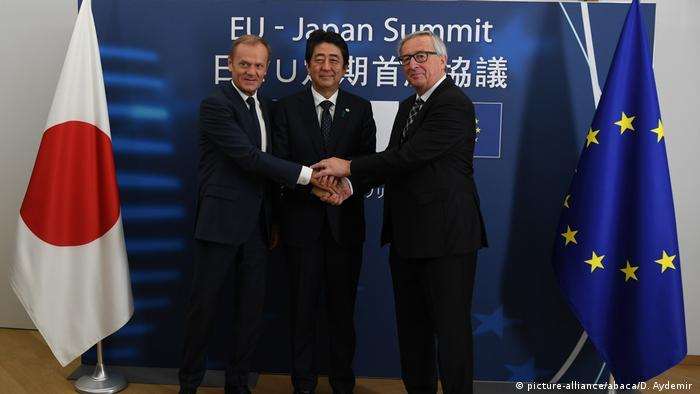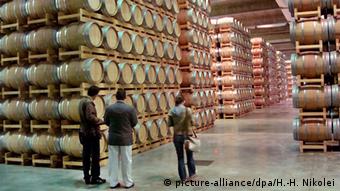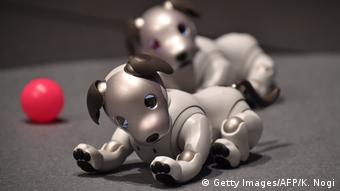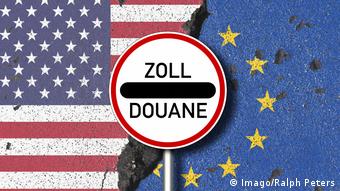With the signing of their free trade agreement, the European Union and Japan want to set an example for globalization. The criticism of the agreement, the EU Commission considers to be unfounded.

The “Economic Partnership Agreement” (EPA) called the agreement between Japan and the European Union, at the latest, in the autumn of 2019. According to the EU Commission, the agreement removes 99 percent of all customs duties, the costs of the companies in the two economic areas is currently around one billion euros per year. After four years of negotiations by the end of 2017 completed a trade Pact is the largest the EU has ever signed.
Actually, the ceremony should take place on the last Wednesday at an EU-Japan summit in Brussels, (cover photo from the summit in Brussels in 2017). However, the Japanese Prime Minister Shinzo Abe, the Meeting said because of the devastating Floods in the West and in the centre of Japan with many dead and Missing in the short term. Now the summit will be rescheduled for tomorrow, Tuesday, with Council President Donald Tusk, as the representative of the European Union in the Japanese capital.

Soon, no customs duties on wine from the EU
“Ambitious and comprehensive agreement”
The EU-Commission, called the agreement “highly ambitious and comprehensive” and expected by the abolition of customs duties and regulatory hurdles to an intensification of trade with Japan. Currently, the island nation is in the far East with an annual volume of 86 billion euros, the second-largest export market for the EU in Asia. On the European side, 600,000 Jobs depend on it. With the signing of the free trade agreement, Japan will open its markets for services and improved access of EU companies to public tenders, such as in the case of Railways and other infrastructure projects.
The additional free the EU to increase space exports to Japan alone in the field of chemistry by up to 22 percent, and machinery, up to 16 percent. A special thrust of the agricultural EU exports are expected to your experience. So Japanese customs fall away, among other things, cheese, wine and pork. The Federal Johann Heinrich von Thünen-Institut in Braunschweig, Germany expects a significant increase in exports in the case of poultry and pig meat. Overall, exports of processed foods to Japan could increase according to the EU Commission of up to 180 percent. On the Japanese side, the advantages focus on the Computer and electronics industry, as well as on the part of the vehicle. The EU import duty on Japanese cars, currently ten percent will be gradually reduced to zero.

Train free for cute dog robot made in Japan
German companies are interested “clear”
“The free trade agreement gives the business relationships in both directions, a new dynamism,” commented the managing Director of the German chamber of Commerce and industry in Japan Marcus Schürmann. The chamber can feel it already since last year on the German side, there is a clear growing interest, a Partner or a private company in the Japanese market. This applies to less-developed areas of business, but also for the sectors mechanical engineering, automotive, pharmaceutical, and chemistry, in which German companies are already in Japan. Currently, about 12,000 German companies in the business in Japan, according to the German chamber of Commerce Japan. “This number could grow in the next few years to a two-digit percentage range,” said Schürmann before.

Japan and the EU also want to set a Signal against protectionism à la Trump
The flag for free trade
The EU and Japan to understand today’s signing as a Signal against the protectionist trade policy of US President Donald Trump. The head of government, Abe sees free trade as a driver of growth for the Japanese economy. “Japan switched on the Turbo in the globalization,” said schuermann. On protectionist developments in the island nation, the answer is more rather than less cooperation. In fact, Japan was the driving force behind the completion of the “Trans-Pacific partnership” (TPP) without the United States this spring, after Trump had dropped out in January of 2017, from the of his predecessor, Barack Obama concluded free trade agreement of the Pacific rim countries. Thereafter, the EU and Japan have accelerated their negotiations.
Prior to the signing of the EU has rejected the Commission’s warnings of consumer advocates before the higher drinking water prices and the forced privatisation of public services. The national and local authorities kept their prerogative to keep public services in public hands, stressed the Commission. Therefore, the agreement does not lead to a deregulation and privatisation of the water supply and sanitation. Rather, Japan and the EU wanted to maintain the highest Standards in work, safety, environmental and consumer protection, the Commission informed. The increased economic growth would in turn increase the demand for products from developing countries.

